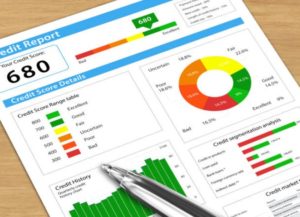You’ve been working steadily, built up good credit and even managed to put some savings away. So now you might wonder if you could finance a home purchase. You’re not alone. Most Americans— over 79 percent recently surveyed by Bankrate.com—still believe that owning a home is a vital component of achieving the American dream.
If you have not yet been through the mortgage process, it’s a little daunting to see if you qualify. With this simple guide, you can calculate a few answers ahead of time- or fix problems- before talking to a lender.
Related Articles
How to qualify for a mortgage
 A mortgage represents a loan of a significant amount of money. The bank is taking a risk each time it makes such a loan. Your credit worthiness in obtaining a mortgage is generally based how likely you are able to pay a mortgage back. Lenders look for sufficient and stable income, funds for a down payment and your credit score. There are a few variables, and the better candidate you are for a mortgage, the better interest rate you can get on the loan.
A mortgage represents a loan of a significant amount of money. The bank is taking a risk each time it makes such a loan. Your credit worthiness in obtaining a mortgage is generally based how likely you are able to pay a mortgage back. Lenders look for sufficient and stable income, funds for a down payment and your credit score. There are a few variables, and the better candidate you are for a mortgage, the better interest rate you can get on the loan.
Have substantial—and stable—income
You must have enough income to cover your new mortgage payment, other debts and then some. Lenders calculate your debt-to-income ratio (DTI) which is recommended to be less than 36%.
 You can easily calculate your debt-to-income ratio. First, start by listing out all of your monthly debts- car payments, student loan payments, credit card bills and anything else you typically pay per month, not including rent, utilities or food.
You can easily calculate your debt-to-income ratio. First, start by listing out all of your monthly debts- car payments, student loan payments, credit card bills and anything else you typically pay per month, not including rent, utilities or food.
Divide your expenses by your monthly gross income. If you make $4000 per month and your debts are $1000 per month, your DTI ratio is 25%, which leaves little room for a mortgage payment. However, if you increase your income, reduce your debts, or apply for a mortgage jointly with a spouse, your DTI will likely improve.
For example, two working adults earning $7,000 per year with monthly debts of $1200 and a proposed mortgage (including principal, interest, taxes and insurance) of $1200 per month have a DTI of 34.29%. Here is the math:
$1,200 expenses + $1,200 mortgage= $2,400 total expenses
$2400 / $7,000= 34.29%
Lenders also like to see two years of consistent income history. It’s okay to change jobs in the same industry, but if you have a gap of employment, that may be a barrier.
Self-employed workers also face challenges as their incomes can fluctuate. This can be overcome by a higher down payment.
If you plan to buy a home in the near future, it is not a good time to change jobs, go on unpaid leave or take on less business if you are self-employed.
Another common mistake for first time homebuyers is making other large purchases at the same time they are trying to get a mortage. Keep that older paid off vehicle a while longer instead of financing a new car, and don’t make any other large purchases, at least until you obtain financing and close on your home. New debts will count against your DTI.
Develop a good credit score
When you apply for a mortgage, lenders will check your credit score to assess whether you’re a low- or high-risk borrower. The higher your score, the better you look on paper, and the better your odds of landing a great loan.
While a perfect score is 850, research suggests that only about 0.5% of consumers hit that coveted mark. Most buyers fall into the “Good” credit score range—700 to 759. Those with “Excellent” scores of of 760 and higher may qualify for a lower interest rate.
If your credit score is “Fair,” between 650 to 699, you have a couple of options. See you qualify for a Federal Housing Administration loan, which requires a 580 minimum credit score, or delay your home purchase plan and work to mend your credit.
The things that typically drag a credit score down are late credit card payments and unpaid medical bills. So one of the first things you can do is put your bills on autopay and set up overdraft protection on your banks account. Also, some people think having no credit cards is a good thing. It may be, but not where your credit score is concerned. Creditors want to see that you have been given credit in the past, and make timely payments. If you have never purchased anything on credit, open one or two account, make small purchases, and make sure to have the bill set up on autopay.
This article has more tips on improving your credit.
How to access your report
 You can request a free copy of your credit report from each of three major credit reporting agencies – Equifax®, Experian®, and TransUnion® – once each year at AnnualCreditReport.com or call toll-free 1-877-322-8228. You’re also entitled to see your credit report within 60 days of being denied credit, or if you are on welfare, unemployed, or your report is inaccurate.
You can request a free copy of your credit report from each of three major credit reporting agencies – Equifax®, Experian®, and TransUnion® – once each year at AnnualCreditReport.com or call toll-free 1-877-322-8228. You’re also entitled to see your credit report within 60 days of being denied credit, or if you are on welfare, unemployed, or your report is inaccurate.
It’s smart to request a credit report from each of the three credit reporting agencies and to review them carefully, as each one may contain inconsistent information or inaccuracies. If you spot an error, request a dispute form from the agency within 30 days of receiving your report.
Make a sufficient down payment

Most mortgage lenders like to see that you have enough in the bank to make a 20% down payment. While this can be a significant chunk of cash ($40,000 on a $200,000 purchase price), there is a good reason to do so. If you put anything less than 20% down on a conventional loan, you’ll need to pay private mortgage insurance—a monthly premium that can range from 0.3% to 1.5% of the total loan amount. Plus, you will still have to come up with at least 10% down.
However, there are other loan programs for those that qualify. FHA-backed loans let borrowers make down payments as low as 3.5%. If you’ve served in the military, the Department of Veterans Affairs loans require no down payment at all.
Determine how much home can you afford
 Assuming you have a stable work history, low DTI, good credit score and some money saved up for a down payment, you’d probably like to know how much of a loan you should ask the lender for.
Assuming you have a stable work history, low DTI, good credit score and some money saved up for a down payment, you’d probably like to know how much of a loan you should ask the lender for.
There are many online tools to calculate this, but Nerdwallet does the calculation by the city or zip code where you would like to live, and they don’t ask for your contact information to give you a range of results.
Your final step is talk to our Homes and Lakeshore team. We have been at this a long time, specialize in first-time home purchases, and have relationships with many local lenders. We can also provide free research to show you listings in your price range and discuss your options, such as a different area where you might get more bang for your buck.
Contact Tom or Karen at info@homesandlakeshore.com. We’re here to help!
